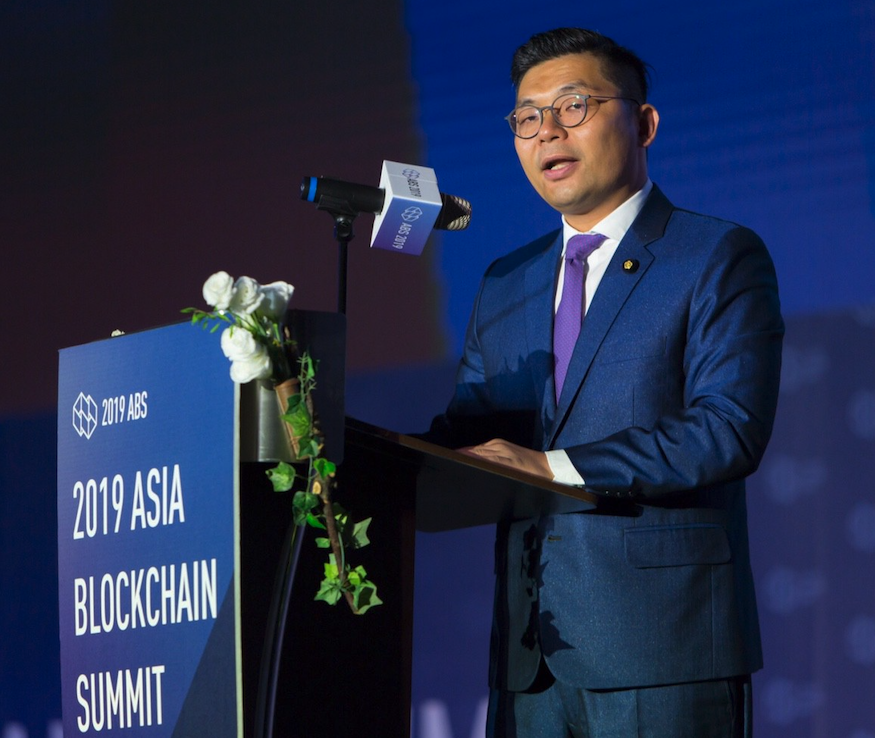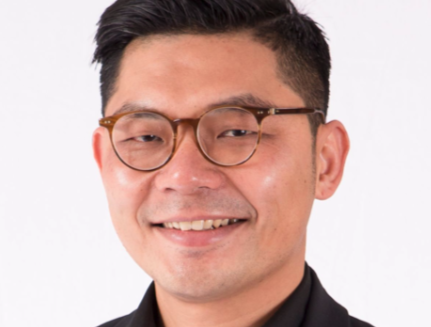
Jason Hsu is a technologist who turned into a legislator, ambassador, advocate for ethnic groups and minorities, and so much more. During his time in parliament, among the crucial legislations, he introduced and passed the Fintech Sandbox Act, Angel Investment Law, etc. Jason is a proponent of cryptocurrency and blockchain and has been given the nickname “Crypto Congressman” by Vitalik Buterin. Jason is also credited for setting up Asia Blockchain Alliance (ABA) as a policy and industry platform.
Jason has introduced 16 critical areas for blockchain implementations from logistics, medical records, IP transfer to the manufacturing supply chain. Jason was a regular keynote speaker on blockchain and cryptocurrency regulations, and he has spoken at Global Blockchain Forum, BlockCity, Seamless, Asian Leadership Conference, Google, Berkeley Blockchain Club, and Taiwan RegTech Conference. Jason Hsu co-founded TEDxTaipei and served as TEDx senior ambassador to Asia.
Interview Date : 17th March 2021
- Jason Hsu (All Interviews)
- Can you tell us about your background?
- What is your nickname?
- Where do STOs symbolize in Taiwan?
- What did you do after stepping down as a Legislator?
- How are Taiwan and China different?
- Why is it important to understand the long-term implications of cryptocurrencies?
- What stance did you have for the crypto industry in Parliament?
- Does Taiwan have an advantage because of its size as a country?
- What country do you think is ahead of all?
- Who would be Taiwan’s competition?
- How has Taiwan been tackling the COVID-19 situation?
- How can governments and exchanges work together?
- Does Taiwan have a firm legal framework for Bitcoin and cryptocurrencies?
- As a legislator, you made it clear that you wouldn’t own any cryptocurrencies. What about today as a private man?
- How has the journey to create equal rights for the LGBTQ community been for you?
- How did you become a licensee for TEDxTaipei?
- Is Taiwan trapped in a generational gap?
Jason Hsu (All Interviews)
Can you tell us about your background?
I am the former legislator and member of the parliament of Taiwan. From 2016 to 2020, I served as the legislator at-large and a Kuomintang (KMT) party member of parliament while in Taiwan’s 9th legislative congress focusing chiefly on technology policy and legislation. Among some of the foreign legislations, I initiated the autonomous Self-Driving Vehicle Act, Cybersecurity Management Act, Virtual Currency guidelines, and the Artificial Intelligence Development Act.
What is your nickname?
I’m known as the Crypto Congressman, and this nickname was given to me by Vitalik Buterin, the creator of Ethereum. I met Vitalik Buterin in September 2017, when China banned ICOs. At that time, many projects were leaving China, and Vitalik got in touch with me saying that this was a perfect time for Taiwan to take the opportunity to become involved with crypto. Since then, I have been working with him and he has been to Taiwan several times.
Where do STOs symbolize in Taiwan?
I initiated the first Security Token Offering law in Taiwan challenge, and this was very symbolic because it became a very important law to allow cryptocurrencies to be regulated and dealt with in this country. I’m also the first politician to ever write cryptocurrency or virtual assets into a form of law in the Anti-Money Laundering law in Taiwan.
What did you do after stepping down as a Legislator?
After I stepped down as a legislator, I served as the secretary-general for Taiwan’s Technology and Science Association, where we have members such as Foxconn, TSMC, Acer, and other several notable Taiwanese Hi-Tech companies.

I’m still very passionate about cryptocurrency and blockchain. Now, I am serving on the board of the International Digital Assets Exchange Association, where we work with FATF, the Financial Action Task Force (FATF) which is the global money laundering and terrorist financing watchdog, for cryptocurrency exchange travel rules and several other things. I also served as a council member for International Standardization Organization, ISO, for FinTech adoption, and that is where I am at today.
How are Taiwan and China different?
China and Taiwan are two different countries. Although Taiwan does not have an internationally recognized status by the UN yet, we do operate on our own political, economic and military system. We have our own monetary system and currency.
China is a communist society whereas we are democratic. The way we look at Bitcoin and cryptocurrency is also startlingly different. China treats it as a more centralized way of controlling people’s money transactions. This is also one of the reasons why they issued the so-called DCEP, electronic Chinese yuan. We, on the other end, look at Bitcoin and cryptocurrencies as a form of a commodity. We don’t regulate it heavily but have a light-touch approach of regulation so people buy and sell cryptocurrencies as a way of trading commodities.
Why is it important to understand the long-term implications of cryptocurrencies?
I think it’s important to understand the long-term implications of cryptocurrency, whether it’s a way to change or get countries to think about how the central bank has to figure out an alternative way for current monetary systems; a way to develop a less politically affected monetary system. Thus, I think the way that cryptocurrency is being perceived around the world is also a reflection of how societies are being perceived. Meaning, every country has its own narrative, and due to their differences in their narratives, they are treating cryptocurrencies and blockchains differently.
What stance did you have for the crypto industry in Parliament?
When I was in parliament, I was probably the most ferocious and passionate advocate of currency and blockchain. I always tried to push Taiwan to become a Blockchain Island and urged governments to strongly adopt this new technology. I knew that the first countries to adopt it will have an advantage in this industry, so I advocated for Taiwan to become a hot hub for exchanges. Imagine this not being just for trading cryptocurrencies, but receiving the merit of new business opportunities, such as cyber securities, wallet providers, mining, semiconductor chips, etc., it would transform the country immensely.
Does Taiwan have an advantage because of its size as a country?
Taiwan is a small island, and there’s a lot of things we can experiment with using blockchains, whether it is transportation, healthcare, property, or energy management. I was pushing it very hard, but after I left the government, many of the projects were sort of left unattended. I got a little worried that the adoption and development wouldn’t continue, but realized now that I’m back in the private sector, and can mobilize other resources to push for its further progress. I am also serving on the boards of several world organizations and industry associations so I am hoping to still be able to have an impact.
What country do you think is ahead of all?
When it comes to blockchain and cryptocurrencies, I don’t think any country is ahead of anyone at the moment. We all started from the same starting line, but countries that are nimble and fast can get the first-mover advantage. Taiwan does already have an advantage as it is smaller, unlike China and the US. Right now, DeFi, NFTs, and similar things are really hot. So, Taiwan can make a claim or statement promoting and advocating for this type of new asset class attracting world companies and entrepreneurs. That’s why I believe Taiwan should be quicker in adopting new trends and be a prototype for crypto and blockchain.
Who would be Taiwan’s competition?
I think Singapore is our biggest competitor as it is very quick in moving towards becoming a cryptocurrency hub. We definitely should act more aggressively, and our government officials and regulators should embrace this trend. They should work with the community to develop laws and guidelines. Instead of a top-down imposing measure, we should resort to a bottom-up way of reaching out to communities.
How has Taiwan been tackling the COVID-19 situation?
During the COVID-19 crisis, Taiwan has done a fantastic job in controlling the infection spread. We have a very low number of infected cases, so If we can use this opportunity to promote Taiwan as a blockchain hub and attract more talent coming set up companies, and also make a quicker and more flexible adoption infrastructure, and see what will great economic growth.
Lack of people and talent is always an urgent issue. There are a lot of new trains of opportunity in crypto and blockchain right now, so if we can attract more talents to come here through government and enterprise encouragement, I think we will see prosperous results.
During this COVID-19 pandemic, the government issued more than 5000 gold card visas, a type of visa allowing professionals to come work and start businesses here in Taiwan. I helped Steve Chen, co-founder of YouTube and a good friend of mine, to get the gold card, and now he lives in Taiwan. So, this measure has shown positive results so far, but if our government can set up a fund to invest in blockchain-related projects, that would make another huge statement for Taiwan.
How can governments and exchanges work together?
The government should take a serious look at all the crypto exchanges in their jurisdictions, and confirm whether or not they comply with the laws, like anti-laundering laws and cybersecurity laws. By doing so, they make private citizens feel safe and encouraged in investing in their future.
Some exchanges provide services for unethical and illegal activities, like money laundering. To prevent that, the trusted and bigger exchanges should collaborate with the law authorities proactively in providing the right information when illegal trading, etc. is happening.
For this industry to flourish and achieve long-term success, the industry needs to operate under the lights – they shouldn’t be walking in the dark or grey area, and governments should not be treated as an underground industry.
Does Taiwan have a firm legal framework for Bitcoin and cryptocurrencies?
We do have a guideline for the infrastructure called Virtual Currency Operators Guidelines. When I was in parliament, I set the Self-Regulatory Organization, SRO, where we now have over 50 companies from the blockchain crypto industry joining as members. They work quite actively with the government to settle regulations, hold hearings and industry seminars. So, the framework is there but it still needs to improve.
Can you name some active famous people who are invested in crypto in Taiwan?
In Taiwan, Jeffrey Huang, a rapper and a celebrity who is active. He has done quite well in several projects he has started. Alex Liu is another activist in the blockchain and crypto space who is the founder and CEO of Taiwan’s first Crypto exchange, MaiCoin.
As a legislator, you made it clear that you wouldn’t own any cryptocurrencies. What about today as a private man?
When I was a legislator, I was pushing this agenda as I was trying to be very neutral. I did not buy or sell any cryptocurrency because I thought it would be wrong for me to do so in the office. However, after I left and became a private person again, I did buy some Bitcoin and that is to show my belief in the technology and the system that I promoted so passionately while in office. One should be careful when buying and selling cryptocurrencies, but it is also important for the private person to know and understand how an alternative economic system works.
Individuals must take it upon themselves to learn and educate themselves about what cryptos are and how to get access. Anyone who buys anything from any agency or middle man should check that platform’s accountability and transparency aspects.
How has the journey to create equal rights for the LGBTQ community been for you?
It’s been very emotional. When I was a legislator, the priority was giving legal rights to the LGBTQ community, and I probably would list blockchain and cryptocurrency as my second priority. As ordinary people, we rarely do have a chance to make an impact.
LGBTQ issues have been around in Taiwan for over 30 years since the first game person came out of the closet. It was a very long march in the dark without seeing the end of the tunnel for many.
Growing up I was always surrounded by gay friends. when I started my own business, I employed several gay people and creating a guy-friendly environment. Over time, when I got to know them on a more personal level, I would hear about their stories and their struggles, jobs, friends, their family members, and how oppressed they felt.
I was very vocal about the issue, but there was a protest from conservatives implying that the constitutions mustn’t protect same-sex marriage, and that led to the issue be abandoned for 2 more years. I made a vow to try to pass a law for the rights of LGBTQ, and so during my last year as a legislator, I happened to be on the committee of law and justice. Even though our terms as a legislator last only for 4 years, the laws that we make will have a longstanding impact for generations to come.
On October 21st, 2016, I made a speech to parliament to urge the Taiwanese government to pass the bill to legalize same-sex marriage and to become the first country in Asia to legalize same-sex marriage. I started to also work with different parties, and ultimately, we were able to push it through in 2019 after a very hard fight.
How did you become a licensee for TEDxTaipei?
I have always been inspired by listening to new ideas. From 2005- 2007 I was in Silicon Valley in San Francisco trying to set up my start-up. At the time, I was exposed to TEDTalks, and also by being in Silicon Valley, there was so much going on and people had amazing ideas. When I returned to Taiwan, I thought that it would be great to start something TED in Taiwan. It just so happened that TED was trying to globally expand at the same time. Luckily, I became one of its first licensees to do events outside of the US and started TEDxTaipei. It grew from one chapter to 32 chapters. I also served as the Ted ambassador for TEDTalks in Asia from 2011 to 2015.
Is Taiwan trapped in a generational gap?
I think Taiwan is a very adapting place. We tend to receive new trends and embrace them pretty easily in general. We are friendly and quite accepting of foreign influences, and I think the only difference between the older and the younger generation is in how we perceive our own identity. The younger generation believes that Taiwan is a sovereign entity and that we are Taiwanese – we do things for Taiwan, and we want our country to be known as Taiwan and not as a part of China.
However, the older generation certainly has ties with China. Many of them originate from there, and they have relatives in China. Some even fought the Civil war in China. So, they still have an emotional attachment to China.
There is no right or wrong in this different perception of identity. I believe this is what it means to live in a diverse society. It’s okay to have differences, but I think politicians sometimes are tricky in manipulating people and trigger hate among different ethnic groups for their advantages.
We need to be more educated and think independently and critically when it comes to these indeed. I believe that Taiwan indeed has a very important place in the world, but also, we have lived in precarious junctures in history. In this region, there are a lot of security concerns, so Taiwan should be smart in navigating our way in not provoking our neighbors. Rather, we should continue to improve ourselves.
Interviewer , Editor : Lina Kamada
【Disclaimer】
The Article published on this our Homepage are only for the purpose of providing information. This is not intended as a solicitation for cryptocurrency trading. Also, this article is the author’s personal opinions, and this does not represent opinion for the Company BTCBOX co.,Ltd.

